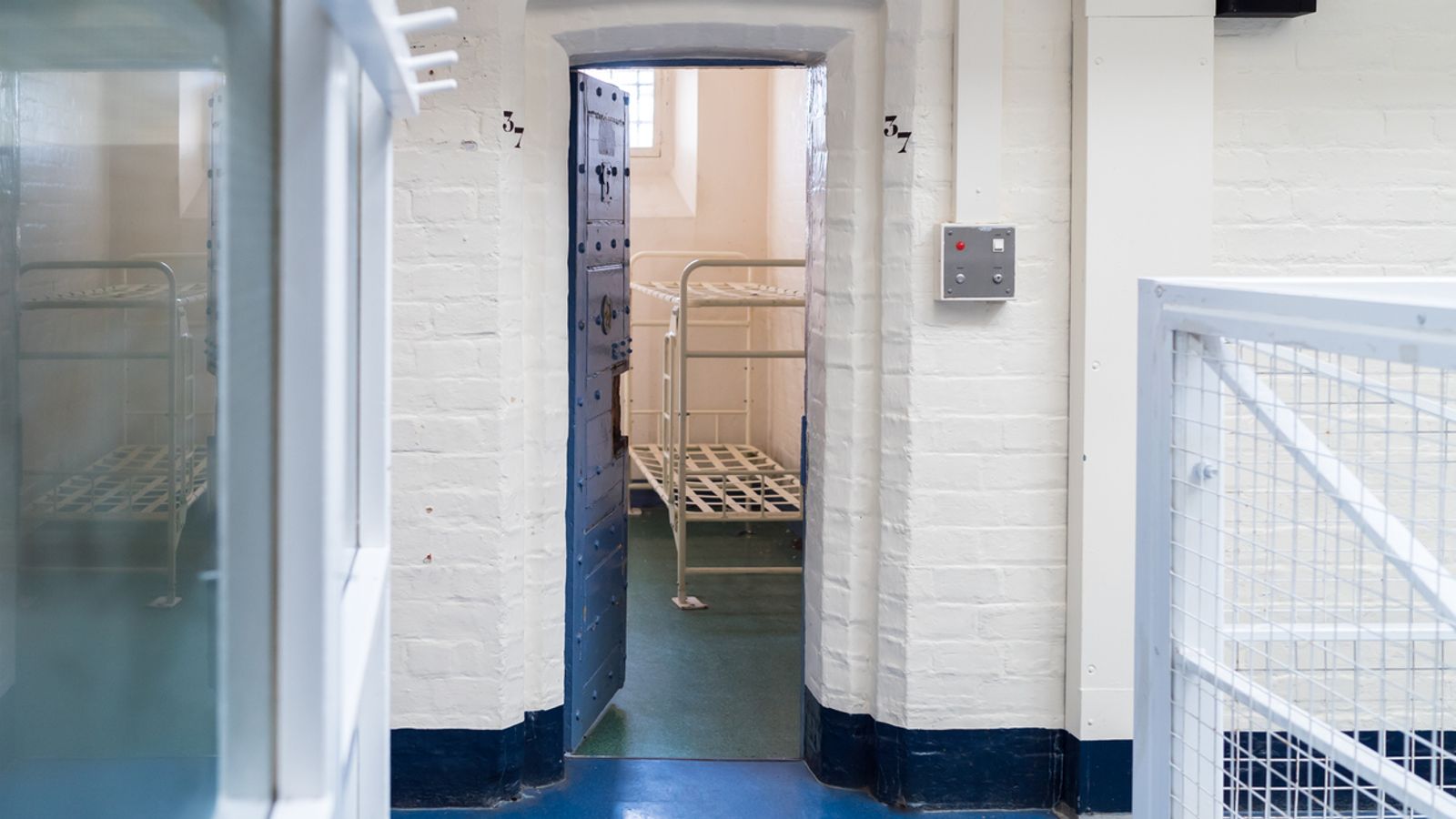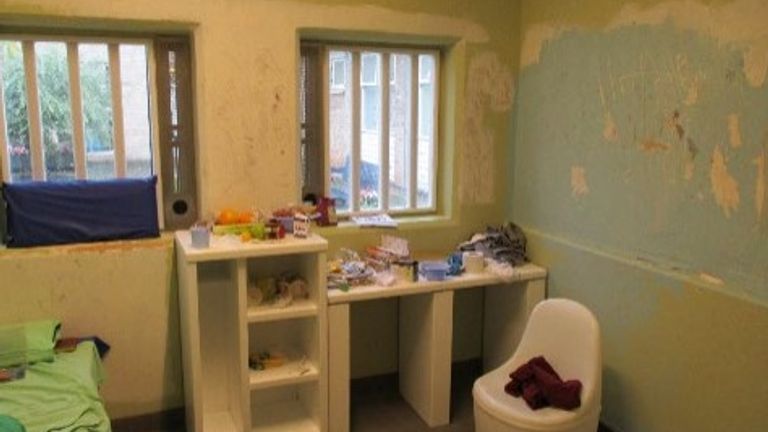A scheme to allow prisoners to be released early because of a lack of space has been extended indefinitely, Sky News can reveal.
Ministers have also expanded the number of jails letting out prisoners before the end of their sentence, according to leaked documents.
Originally, the early release scheme – known as the End of Custody Supervised Licence (ECSL) – applied to 21 jails, but has since been “updated” to apply in others.
The scheme, outlined in October, allowed prisoners to be released up to 18 days before the end of their sentence to reduce an “acute and exceptional demand” on prison places.
Guidance to prisons obtained by Sky News reveals the scheme has now been “activated for an undefined period”.
Officials insist this does not mean the scheme is permanent but have been unable to supply a date of when the ECSL will end.
They deny this marks a fixed alteration to the way they will manage prisons in the future.
The changes could allow more people found guilty of domestic abuse related crimes, among others, to be released early.
Those guilty of more serious offences, serving sentences of more than four years, are not eligible for early release.
‘Activated for an undefined period’
When introduced by the government, ministers stressed the ECSL was “temporary”.
But leaked documents of government guidance sent to prison and probation staff now says their scheme has been “revised”.
An “urgent contingency” scheme which is “now activated for an undefined period” has been “updated to facilitate/ support activation in new prisons”, the guidance says.
Read more:
Ministers using ‘misleading’ claims to justify indefinite detention
Prison guards disciplined after criticising inmates over loudspeaker system
Violence against prison officers soars
Senior staff have been given escalation criteria to consider blocking inmates from early release. But the documents stress escalation should only be in exceptional circumstances.
The documents say: “As a general principle ECSL is an urgent contingency scheme to create essential prison capacity and, therefore, it is critical that it operates quickly to generate the required releases. Escalations to Capacity Gold to consider a delayed release should be exceptional.”
The change has caused anxiety in the prison and probation service, prompting fears that some prisoners may be released with sped up risk management processes or wrongly released early.
A source close to the scheme told Sky News: “The biggest practitioner concern is that it’s front-loading a load more work onto practitioners who are already massively over capacity.
“The problem with that is that’s when things get missed or things aren’t given the attention they need.”
An early release scheme was used under a Labour government in 2007. The party is now calling for the government to be transparent about the terms this time around.
“This is extraordinarily damning – the Conservative government cannot continue to extend and expand indefinitely what is supposed to be a temporary scheme with zero transparency,” Shabana Mahmood, the shadow justice secretary, told Sky News.
“It is not a surprise to me given the scale of the government’s prison crisis that they have extended this scheme, but at the very least – they should acknowledge the public have a right to know about the details of this scheme, and Parliament has a right to know.”
But there are serious concerns about overcrowding in prisons, and some welcome the need for this scheme.
As of figures published on Friday, 87,973 people are currently behind bars in England and Wales.
The number of people that can be held in “safe and decent accommodation” in prison, known as the “certified normal accommodation”, or “uncrowded capacity” is considered by the Ministry of Justice (MoJ) to be 79,507.
That means the current overall system is at 110.6% capacity, or overcrowded.
‘Vital to reduce pressure on overcrowded prisons’
Andrew Neilson, director of campaigns at the Howard League for Penal Reform, said: “We welcome the early release scheme the government has announced, as it is vital that pressure on overcrowded prisons is reduced as a matter of priority.
“It is unfortunate that the government has not acted more quickly to head off this crisis in capacity with sensible policy measures, but we welcome any move to reduce prison numbers and ensure that prisons can be safe and purposeful places where people can get support to move away from crime.”
The government claims that eligible offenders are only let out a matter of days early, face strict supervision and are subject to monitoring conditions, including wearing GPS tags, being subject to curfews, exclusion zones.
They can be recalled to prison at any point for breaching these requirements.
Despite claims the scheme is limited, the MoJ has not given details about how many prisoners have been released under the scheme.
A spokesperson for the MoJ said: “The terms of the End of Custody Supervised Licence scheme have not changed since it was announced in October.
“It is temporary and only used to relieve pressure in prisons where necessary. Only offenders who are a matter of days away from release are being considered and anyone convicted of a sexual, terrorist or serious violent offence is excluded, with those who break the rules facing a return to jail.”

